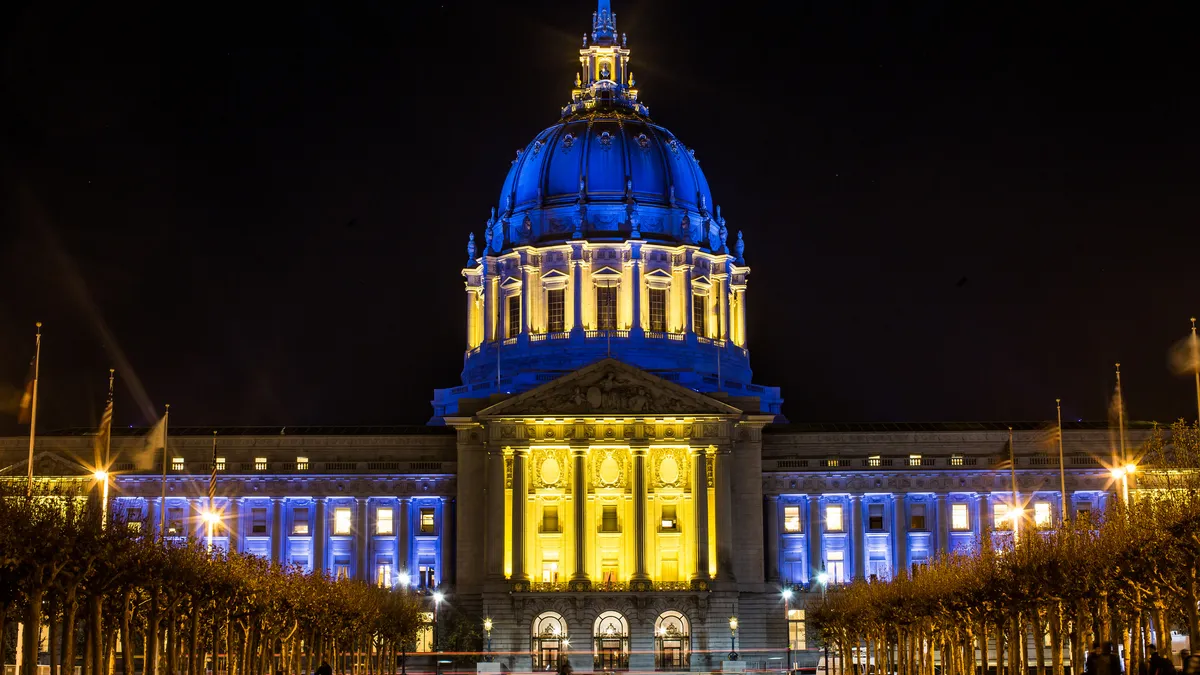Dive Brief:
- Outgoing interim San Francisco Mayor Mark Farrell reportedly won’t place a tax measure to fund a citywide high-speed internet network on the November ballot, effectively stalling the project, according to the San Francisco Examiner and others.
- Farrell and predecessor Ed Lee had explored the possibility of a municipal fiber internet network, and had even selected three companies to bid on construction and operation. San Francisco would become the first large city in the country to offer universal internet access.
- If passed by voters, the revenue initiative would have raised $1.7 billion over 25 years to cover the project, but polling showed it was shy of the two-thirds majority needed. City officials said they will continue exploring the possibility of a network despite the delay.
Dive Insight:
Farrell was bullish on the project to close the "digital divide" in the city by increasing internet access to low-income residents. He even once said if that "alone is the only thing we get done, I will tell you my time in public office has been worthwhile."
According to a 2016 report, 100,000 San Francisco residents don’t have internet at home and another 50,000 relied on dial-up, statistics that Farrell called "criminal" in an interview with the San Francisco Chronicle. Expanding internet subscriptions ensures that more residents have access to educational and job information; groups like the National League of Cities have identified the digital divide as another fissure in the gap between the rich and poor.
Making the internet a city-backed utility, like water or electric, would lower the cost and ensure that private companies don’t ignore neighborhoods when laying cable. Chattanooga, TN has its own publicly-owned fiber network operated by the electric utility, and other cities have looked to partner with private companies to expand their access. Kansas City, KS partnered with Google to lay the company’s fiber optic network to mixed results. More recently, Facebook has moved ahead with its Terragraph project to put broadband wireless in cities, although it has not announced its partners.
The move also comes a week after London Breed officially won the mayoral election and will take over on July 11. Breed and Farrell do not have a strong relationship and she has not weighed in on the project, but Farrell’s office will prepare briefing documents for the incoming administration.
If it comes to fruition under Breed’s stewardship, the hope is that San Francisco’s network could offer a model for the rest of the country. While the federal government has given attention to improving rural broadband access, U.S. Census statistics show that major cities like Detroit and Cleveland still have massive digital divides. San Francisco’s success could pave a way for other cities to create their own programs to boost low-income residents.











